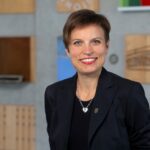NEREUS (Network of European Regions Using Space Technologies) is the only European association of its kind in that the responsibilities for governing the network lie with the regions that comprise its membership. NEREUS represents the interests of European regions that use space technologies whilst simultaneously highlighting the regional dimension of European space policy and programmes. It is the key mission of NEREUS, as a unique thematic network for matters of regional Space Uses, to explore the benefits of space technologies for European Regions and their citizens as well as to promote the use of space and its applications.
Since the inception of NEREUS in 2007, European space infrastructures have grown increasingly mature, implying a new dimension of data availability, leading to more space solutions at the service of society. In other words, space data and applications are advantageous for business, government and society, helping them to better respond to major societal and policy challenges. Regions are the key users and procurers of space-based applications, products and services. In particular, by using the two flagship space programmes – Copernicus, Galileo /European Geostationary Navigation Overlay Service (EGNOS) – public authorities (PAs) are able to address their needs and maximise the social, economic and environmental impact at a local and regional level.
Although “data is the new gold”, the reality is, however, that translating data into useful information to be used by citizens, companies and administrations, is still a great challenge. Much needs to be done to facilitate data access, management and processing to overcome policy barriers, governance difficulties, technical issues as well as a lack of skills and awareness.
By providing a dynamic platform, the Network raises awareness of the benefits offered by space and helps all regions and their citizens to avail of these. Therefore, it is expected to (i) serve as a forum to facilitate this translation process and to promote a broad uptake across Europe, and (ii) to ensure that upstream systems evolve to better serve the needs of the downstream users.
NEREUS’ main activities focus on: a) Political Dialogue b) interregional Co-operation & Partnership and c) Technological Trends and Developments relevant for future Space Solutions and User Needs.
Quotes by Members and others
“My ambition for this new mandate is based on four key priorities: Ensuring the sustainability and stability of our network by strengthening our structure and governance to secure NEREUS’s long-term continuity and resilience; Pursuing the expansion and openness of the network by attracting new European regions, fostering strategic partnerships, and further promoting the skills and expertise of our members; Enhancing the impact of space technologies for local territories by advocating for their integration into regional public policies as key to making our territories more resilient and facilitating access for local stakeholders; Exploring the potential of strategic technologies and cross-fertilization to support their development in our regions and engage in dialogue with the EU in this area.” Thierry Cotelle, Occitanie region (France)
“Over the next five years, NEREUS should aim to solidify the role of European regions in space technologies, leveraging the cross-collaboration among regions and, in this way, promoting the integration of satellite data into regional policies: in particular, focusing on the use of AI and Big Data. In an evolving geopolitical landscape, the Network should help Europe in reaching strategic autonomy and technology sovereignty, focusing on the benefits of space for citizens, supporting the development of strategic technologies, and strengthening inter-regional cooperation to address challenges like climate change and security.” Marina Silverii, Emilia-Romagna region (Italy)
“In light of the evolving geopolitical landscape in Europe and globally, the member regions of NEREUS have the opportunity to move closer together over the next five years and become an even stronger alliance against international and global competition.” Constanze Wolf, Baden-Württemberg region (Germany)




